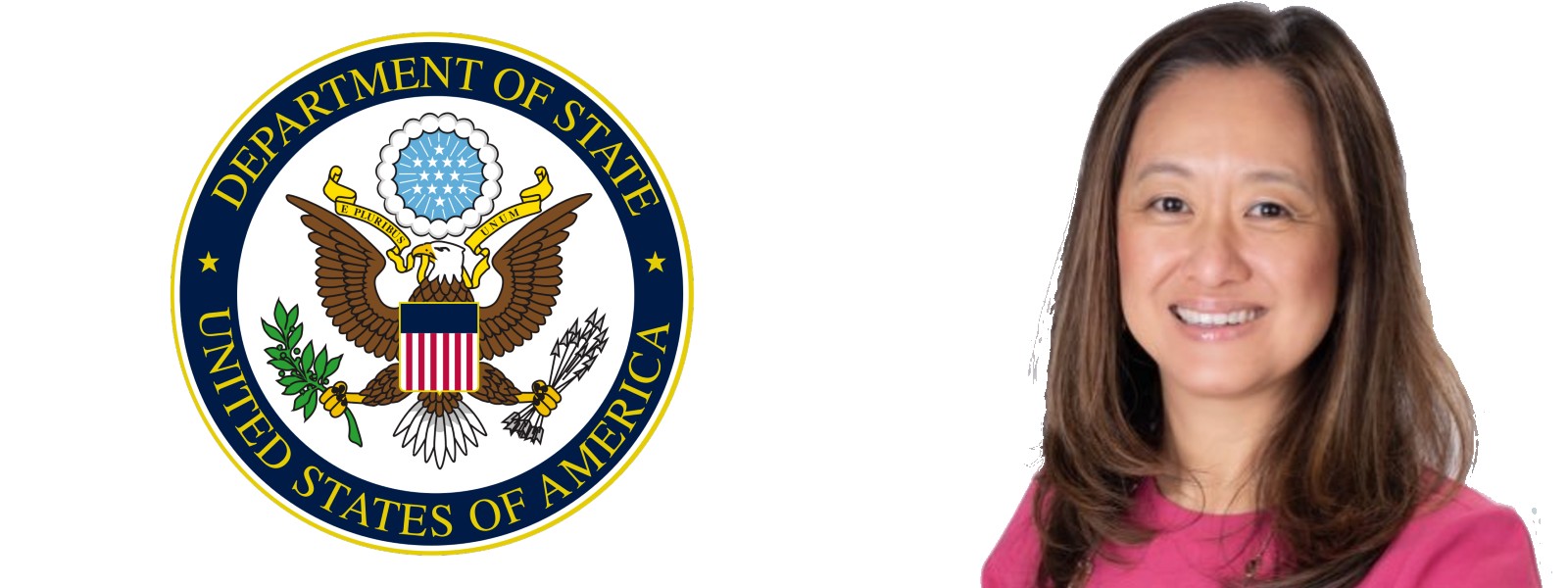The United States of America has welcomed the approval of Sri Lanka’s IMF package.
“Great news & an important step on the road toward economic recovery,” tweeted US Ambassador to Sri Lanka Julie Chung on Monday (20).
She said that the Sri Lankan government will need to continue reforms and conclude debt restructuring agreements to ensure the program – and the economy – stay on track.
She noted that structural & lasting reforms that address good governance & transparency are critical to ensure all citizens of Sri Lanka can prosper.
IMF Managing Director Kristalina Georgieva also noted that she was very pleased the Executive Board of the IMF had approved about $3 bn of IMF support for Sri Lanka’s economic policies & reforms.
She said that it was an important milestone with International Creditors coming together to help to restore debt sustainability. “Crucial to unlock Sri Lanka’s growth potential,” she added.
The International Monetary Fund said that it will enable an immediate disbursement equivalent to about US $ 333 million for Sri Lanka under EFF program, following Executive Board approval on Monday (20).
The Executive Board of the International Monetary Fund (IMF) approved today a 48‑month extended arrangement under the Extended Fund Facility (EFF) with an amount of SDR 2.286 billion (395 percent of quota or about US$3 billion).
Sri Lanka has been hit hard by a catastrophic economic and humanitarian crisis. The economy is facing significant challenges stemming from pre-existing vulnerabilities and policy missteps in the lead up to the crisis, further aggravated by a series of external shocks.
The EFF-supported program aims to restore Sri Lanka’s macroeconomic stability and debt sustainability, mitigate the economic impact on the poor and vulnerable, safeguard financial sector stability, and strengthen governance and growth potential. The Executive Board’s decision will enable an immediate disbursement equivalent to SDR 254 million (about US$333 million) and catalyze financial support from other development partners.
Following the Executive Board discussion on Sri Lanka, Ms. Kristalina Georgieva, Managing Director, issued the following statement:
“Sri Lanka has been facing tremendous economic and social challenges with a severe recession amid high inflation, depleted reserves, an unsustainable public debt, and heightened financial sector vulnerabilities. Institutions and governance frameworks require deep reforms. For Sri Lanka to overcome the crisis, swift and timely implementation of the EFF-supported program with strong ownership for the reforms is critical.
“Ambitious revenue-based fiscal consolidation is necessary for restoring fiscal and debt sustainability while protecting the poor and vulnerable. In this regard, the momentum of ongoing progressive tax reforms should be maintained, and social safety nets should be strengthened and better targeted to the poor. For the fiscal adjustments to be successful, sustained fiscal institutional reforms on tax administration, public financial and expenditure management, and energy pricing are critical.
“Having obtained specific and credible financing assurances from major official bilateral creditors, it is now important for the authorities and creditors make swift progress towards restoring debt sustainability consistent with the IMF-supported program. The authorities’ commitments to transparently achieve a debt resolution, consistent with the program parameters and equitable burden sharing among creditors in a timely fashion, are welcome.
“Sri Lanka should stay committed to the multi-pronged disinflation strategy to safeguard the credibility of its inflation targeting regime. As the market regains confidence, the authorities’ recent introduction of greater exchange rate flexibility will help to rebuild the reserve buffer.
“Maintaining a sound and adequately capitalized banking system is important. Implementing a bank recapitalization plan and strengthening financial supervision and crisis management framework are crucial to ensure financial sector stability.
“The ongoing efforts to tackle corruption should continue, including revamping anti-corruption legislation. A more comprehensive anti-corruption reform agenda should be guided by the ongoing IMF governance diagnostic mission that conducts an assessment of Sri Lanka’s anti-corruption and governance framework. The authorities should step up growth-enhancing structural reforms with technical assistance support from development partners.”
The IMF Executive Board approved Sri Lanka’s program under the Extended Fund Facility (EFF) that will enable Sri Lanka to access up to $7 billion in funding, reported the President’s Media Division.
President Ranil Wickremesinghe has expressed his gratitude for the support of the IMF and other international partners, said the PMD.
It added that the President committed to full transparency in all discussions with financial institutions & creditors, & to achieve sustainable levels of debt through prudent fiscal management & an ambitious reform agenda.
The IMF program is critical to achieving this vision & will help to improve Sri Lanka’s standing in international capital markets, making it an attractive country for investors, talent, & tourists, said the President’s Media Division.
Earlier this month, Sri Lanka received IMF-compatible financing assurances from its official creditors, including Paris Club members, India and China, allowing the IMF to convene an Executive Board and consider Sri Lanka’s request for a loan.
The program is expected to provide much-needed policy space to drive the economy out of the unprecedented challenges and instill confidence amongst all the stakeholders.
Sri Lanka reached a Staff-Level Agreement with the IMF on a four-year program supported by the Extended Fund Facility on 1st September 2022.
The program, amounting to US$ 3bn, is expected to restore macroeconomic stability and debt sustainability while protecting vulnerable groups and safeguarding Sri Lanka’s financial system.
Since September, the Government of Sri Lanka has held official creditor meetings to update stakeholders on the country’s reform agenda and share information transparently as well as engaging with commercial creditors.


